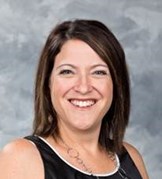Advance Care Planning
Message from YLYW Task Force Chair

Crystal Stiffler, Former Chair, Your Life Your Wishes Task Force
For as long as I can remember my mom and I talked. We talked about almost everything. Nothing was off the table when it came to conversations with my mom. Imagine how our world was rocked when six years ago my mother was diagnosed with Alzheimer’s disease. Hearing those words come out of her doctor’s mouth was devastating. When my mom was diagnosed, I had worked over 15 years as a social worker in healthcare. I knew what that disease was going to do to my mother and to our family. As time progressed, I began to see my mother slip away from me mentally. She could no longer remember a conversation we had a day ago, five minutes ago, or now, 5 seconds ago. I used to be able to talk to her about my life, my struggles, my fears, my joys and feel that she could give me sound, solid advice. Now, she thinks I’m her sister. I have moved from the role of daughter, to the role of parent. I take care of their medical and financial needs. Often, I am called upon to make medical decisions for her. When these decisions need to be made, I don’t hesitate to make them. I have no hesitations because my mom and I talked about her wishes when she was healthy and well. Because she told me how she wanted to live her life, she also told me how she wanted to die. She shared with me what she valued in her life. My mother had strong faith. As she was challenged throughout her life her faith and her strength shined through. To this day, her faith gives me strength.
My work as a hospital based social worker has allowed me to interact with families when they are at their most vulnerable. I see patients and families when they are in crisis. Making healthcare decisions when someone is in the midst of a crisis usually does not have a positive outcome. Families and friends are asked to make healthcare decisions about their loved one every day. Many don’t even know where to start. Much of the education we receive about hospital care comes from what we see on TV. People generally expect a positive outcome and are heartbroken when the outcome is not what they expect.
Statistically, 70% of people say they prefer to die at home, while in reality, 70% of people die in a hospital, nursing home or long term care facility. 80% of people say that if they were seriously ill, they want to talk to their doctor about end-of-life care, 7% report actually having that conversation (Source: Survey of Californians by the California Healthcare Foundation 2012). More than 90% of people think it’s important to talk about their own wishes for end of life care to their loved ones and less than 30% actually have that talk (Source: National Survey by the Conversation Project 2013). Many of us have the vision that we will die in our sleep. But the reality is, we don’t die that way. Five million Americans have a diagnosis of Alzheimer’s disease. Those who have the diagnosis will eventually loose every capacity to make decisions. How are their friends and families going to speak for them if they never had a conversation?
How and when do we start the conversation with the people who are eventually going to make decisions on our behalf? We start it early and we start by talking about how we live. What are our values, what is important to us? What does quality of life look like for us? As we begin to talk, we begin to share our stories. What we liked or didn’t like about how someone else lived their life. As my mother shared these same values with me, I learned how she wanted to live and how she wanted to die. Not only did my mother talk to me about her life values, she wrote them down for me as a guidance. She completed her living will and made sure that I had a copy.
Today, if I get a call and I am asked to act upon my mother’s living will, I will be able to, with all confidence support what she wrote down on paper, because she told me in her own words what she valued most in her life. Thank you mom.
